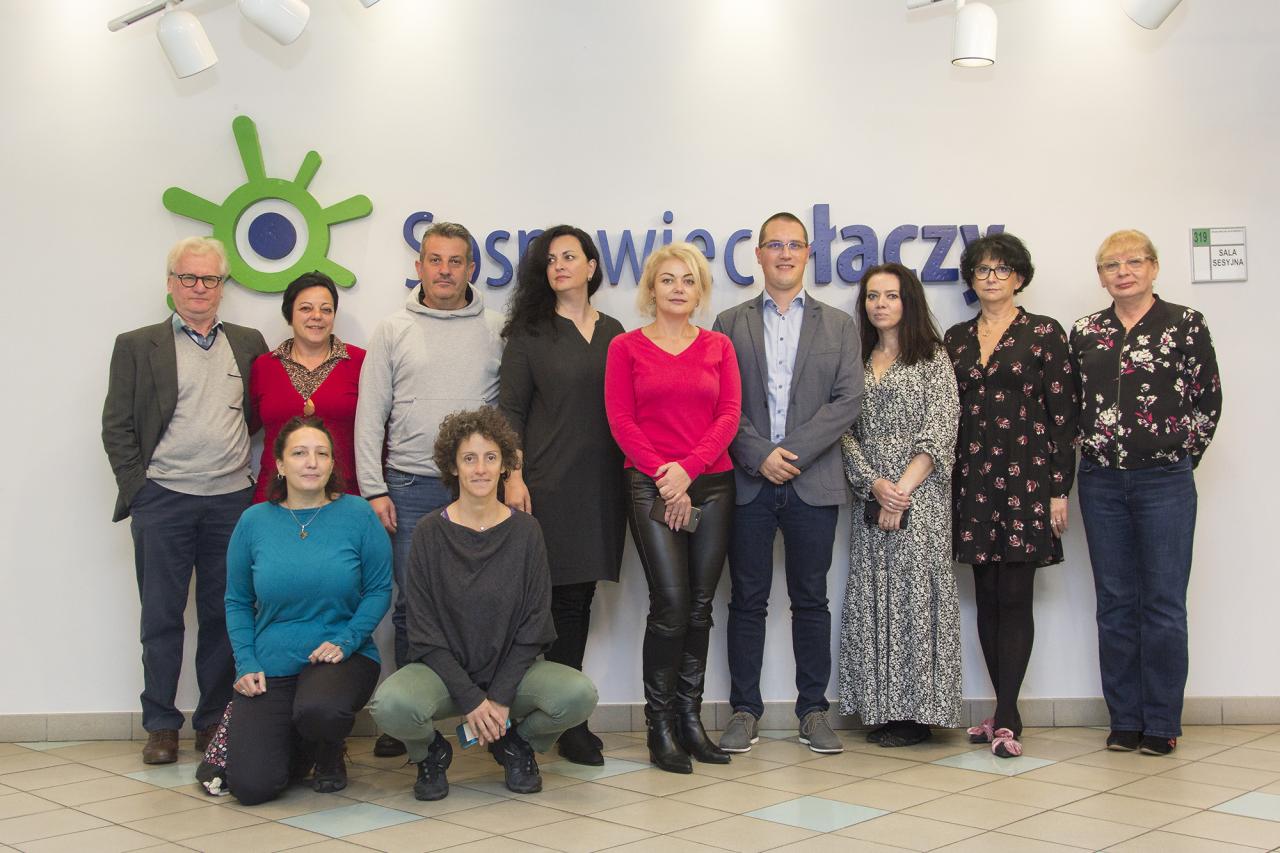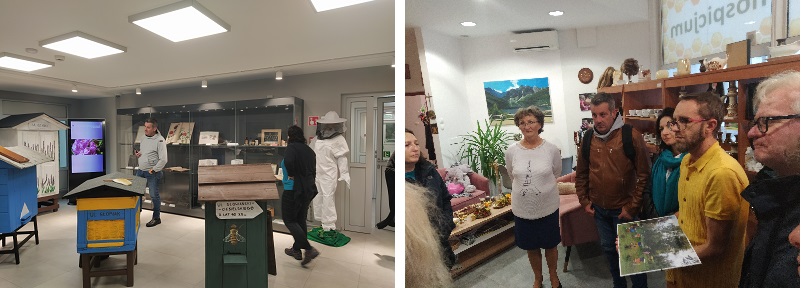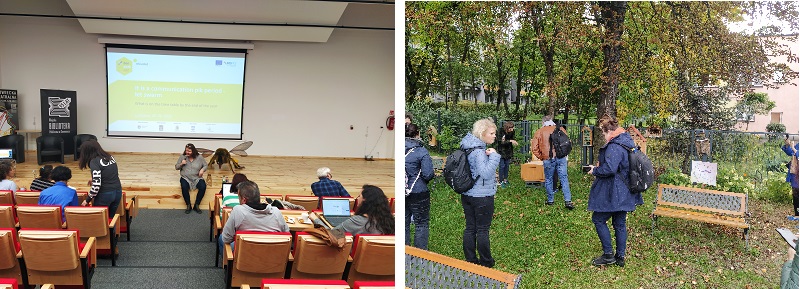The partner city representatives were greeted by Anna Jedynak, Mayor’s Plenipotentiary for External Funds and Social Matters. She highlighted important accomplishment directly resulting from this project such as 20 URBACT local group members deeply involved in environmental protection, establishment of a biodiversity park, also new municipality legislation on beekeeping, implemented educational programme and several new products. The city of Sosnowiec is already introducing these solutions across Poland. In her opinion the best impact of this project is a change in Sosnowiec citizens behaviour and their way of thinking.
Partners presented the progress they made with their Bee Paths and how they deal with new products in their cities. Bansko (Bulgaria) and Osijek (Croatia) are focusing on marketing aspects. Bansko, wants to introduce bee products such as honey, pollen, wax … in different forms. One of their most unusual products is a tea made of dead bees as a source of different microelements, acids and chitosan. The city of Osijek highlighted good marketing possibilities of honey vinegar and their intention to promote apitherapy as a rather unknown service in Croatia. Bergamo (Italy), a UNESCO site of gastronomy, successfully established synergies among beekeepers and cheese producers. They matched their nine special types of cheese, protected with EU label Protected geographic origin, with regionally specific honey types. On the other side, Sosnowiec focuses on awareness raising. They encourage restaurants to use honey in cooking, organised various pollinators and environment protection related events and celebrations with an excellent citizens response, awareness building for children in Zaglebie Media Library … They also made a bee mascot.
This meeting was also an opportunity to discuss the final outputs that need to be produced as well as the work on partner’s mid to long-term urban beekeeping plans. One of the most important aspects of the meeting was the finalisation of preparations for the network final conference and launch of the Bee Path Cities network which will occur at the same time. In discussion on issues related to the future the first five partner cities representatives (BeePathNet) also joined us via zoom.
The most inspiring part of the meeting was the visit of the Sosnowiec Bee Path where we learnt of different approaches the city employs to bring bees closer to residents. In the Katowice special economic zone, Agnieszka Glińska (Anna Kopka) of the Sosnowiec and Dabrowa subzone presented their work, which was followed by a presentation by Bożena Wroniszewska-Drabek from Humanitas University on how to use marketing support for new products. Among the points visited were Sielecki Castle, Schoen Museum, Zaglebie Media Library, Honey Comb Charity Shop, Museum of Medicine and Pharmacy and many more.







